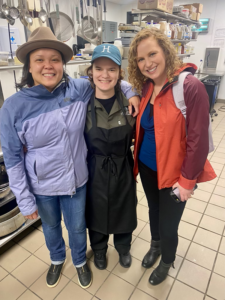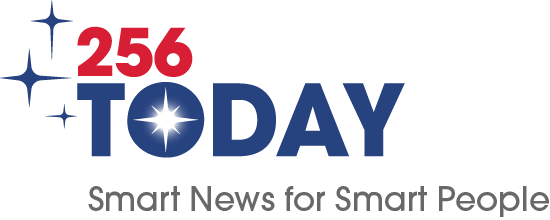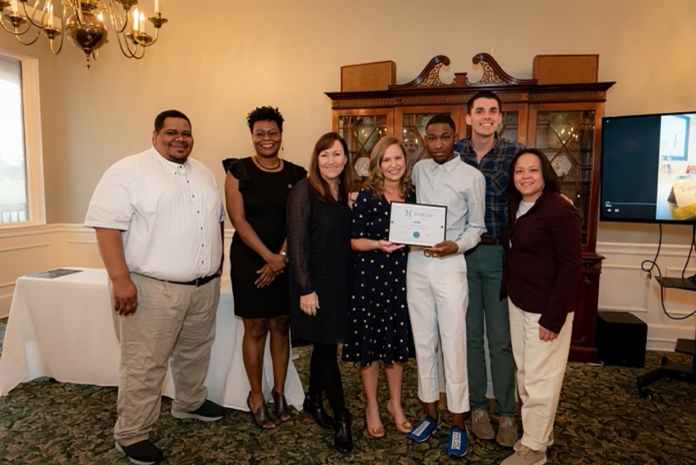Beth Boyer and HATCH co-founder Garrett Coyne dreamed of a workforce development program that offers not just industry standard culinary and hospitality training but one that also helps people develop personal life skills to help them open opportunities in the hospitality industry. Those skills should empower “opportunity youth” – the 18 to 24-year-olds that make up a huge segment of the hospitality workforce, with the skills to lead successful, self-sufficient lives.
Many human resource experts agree that a 10-15% annual employee turnover rate can be expected across most industries. However, according to the Bureau of Labor Statistics, turnover in the hospitality industry hovers around 70-80% annually.
Beth Boyer experienced this as general manager of the Huntsville Country Club. There was a huge discrepancy between the number of people she hired for a job and those who could keep the job. The issues were not just job training. Boyer saw that low-income people, especially young people ages 18 to 24, face both tangible and intangible barriers to holding down a job.

“This 18 to 24, lower-income demographic often faces barriers others never experience like the lack of a driver’s license, lack of access to a car or public transportation, issues related to the lack of safe and secure housing, living on their own at a young age due to family instability, or being homeless and living in shelters,” said Joanna White, HATCH Development & Operations director.
“And they also face intangible barriers like a personality disorder, addiction, or a disability,” she added.
HATCH was literally “hatched” as a program for building a strong hospitality workforce by providing hands-on training in the culinary arts and hospitality industry, and by empowering people with self-confidence and personal development skills.
“But the real goal,” White emphasized, “is changing lives. And the more people we can get involved in HATCH to do that – the better.”
Each “cohort,” a name program directors believe better describes the teamwork involved in each class, lasts eight weeks. Classes are Tuesday through Friday for six hours from 9 a.m. until 3 p.m. Cohorts get two healthy meals a day, uniforms to wear, and HATCH works with community partners like United Way to help with transportation issues.
And best of all, each attendee will be paid a $1,250 stipend if they meet all the goals and requirements of the program. But the program is far from easy. Once accepted, there are a series of things the applicant must accomplish to stay in the program and some people do not make it.
“Some people call it building the plane as we fly it,” laughed White. “But we sometimes have difficulty convincing these young people HATCH really is a free program, and they get paid.
“While the long-term goal right now is to have 10 member cohorts, in just the past year since HATCH launched, we have graduated 13 people and a majority are still in hospitality or service-related jobs.” marveled White.
HATCH has a small paid staff and many community partners and volunteers. The program director, Audrey Smith has a steep background in counseling and case management.
On the personal skills side, Bank Independent is helping HATCH cohorts open free checking accounts so they can learn how to make deposits, write checks, and pay bills.
A weekly financial management class helps teach them how to manage their money.
John Ruffin, a licensed professional counselor in Huntsville holds therapy sessions every day.
The cohorts take grocery shopping trips together to learn how to shop for the freshest ingredients and best prices. They learn how to buy in bulk like for a restaurant.
On the instruction side, HATCH has volunteers who teach classes on fine dining, setting a formal table and wealth and money management. They conduct mock job interviews and encourage career readiness; and they bring in motivational and guest speakers on a regular basis.
“We are so grateful to Cathy Anderson at Woody Anderson Ford for allowing HATCH to use the former Henry’s Mustang Café space,” said White. “We have setup a classroom there, and we spend two to three hours a day working in the café’s kitchen with well-known Huntsville executive chef, Ruth Mercado of 3Skillets and Sandwich Farm. She teaches them every aspect of working in a restaurant and in a kitchen environment.”
Every Thursday, the cohort goes on a field trip to hospitality hotspots, stopping at MidCity where they tour the new Orion Amphitheater and get a taste for all the hospitality jobs available just in that single development. They also go exploring downtown where they visit six to eight hospitality establishments including pubs and breweries where they learn about bar service, a potentially lucrative aspect of the business. They may do breakfast at Canadian Bakin’ or tour 106 Jefferson, ending at the VBC where one of their recent grads has a job as a prep cook.
Anyone interested in applying to HATCH or who knows of a young person who could benefit from such a life-changing experience, there is an application and interview process here.
“Social and emotional barriers do not have to be life barriers and there are a lot of people out there who qualify for HATCH and don’t realize it. We want and need to reach them,” said White.
Don’t miss out! Subscribe to our email newsletter to have all our smart stories delivered to your inbox.



